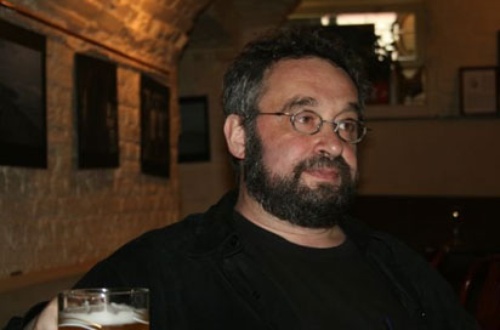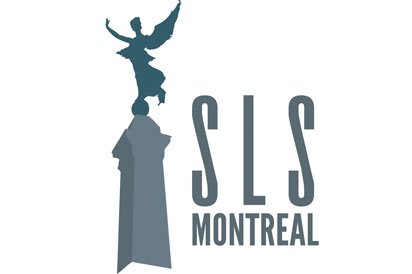
The SLS Interviews: Mikhail Iossel
The founder of Summer Literary Seminars discusses the Soviet Union, Seamus Heaney and why there’s no difference between famous writers and beginners.
I took a workshop with Mikhail Iossel at Concordia University, in 2007. The first thing I noticed about him was his watch. It had two faces. I asked him why he had such a fancy watch. He told me it was so that he always knew what time it was in St. Petersburg. That’s where he’s from.
Iossel, fifty-five, holds an MA in English and Creative Writing from the University of New Hampshire. He’s taught creative writing at the University of Minnesota, at New York University, at the New School, at St. Lawrence University, at Union College and, since 2004, at my alma mater, Concordia, in Montreal. He’s the author of a collection of stories called Every Hunter Wants to Know: A Leningrad Life, and has co-edited, with Jeff Parker, a book of essays entitled Amerika: Russian Writers View the United States. Iossel has received fellowships from the National Endowment for the Arts (1993) and the Guggenheim Foundation (1999).
We’re meeting to talk about Summer Literary Seminars, a literary festival Iossel started in St. Petersburg, Russia, that has since been staged around the world: in Nairobi, Vilnius and, for two years running, here in Montreal.
Born in Leningrad, USSR, in 1955 (“I usually tell people it was '78,” he says in an email— “I'm kinda like Zsa Zsa Gabor that way”), Iossel would have studied literature at university—he’d won an essay contest that secured him a spot. Authorities found out he was Jewish, however, and threatened him with army service if he didn’t study engineering instead. So Iossel became an electromagnetic engineer. But he kept writing.
“Back in Soviet Union,” he says, “I published and edited a lot, mainly poetry.” Iossel was part of the underground—“samizdat”—writing scene in Leningrad. He’d been trying to get out of the USSR for eight years when he was suddenly granted leave. Within twenty-four hours of hearing the news, he was on a plane and heading to the States. An excerpt from Every Hunter Wants to Know stages the scene of his departure:
On the eve of 1986, suddenly I was permitted to leave. And so I left. When they let you out, you leave…Getting off the bus that took me to the pallid underbelly of the TU-154 plane, silent on a white January tarmac, I turned around and saw a group of my family and friends on the Leningrad International Airport building’s concrete balcony a couple of hundred meters away. There was something profoundly mournful about their gathering. They already were my past.
He settled in Boston. “I was completely destitute,” he says. He was thirty and had to share quarters with a couple of South Americans who kept a tank of piranhas. (I always picture everyone in barrack-style bunk beds at this juncture, but apparently they all had their own rooms.)
“If I didn’t have this idea of myself as a writer,” says Iossel, “I would have succumbed to depression in a deep, very powerful way.” Iossel’s initial attempts to continue writing in Russian bogged him down. “Russian is a co-conspirator, basically,” he explains. “It will let you go everywhere you want. Russian was aiding and abetting and swallowing me in misery.”
Despite his difficult initial acclimation to the United States, Iossel managed to pal around with some of Boston’s best writers right from the onset. “When I first came,” he says, “a friend of mine took me to a dinner party with Seamus Heaney—her mother had a dinner with Seamus Heaney!” He got to know Robert Coover. He hung around with Bill Corbett. “Bill Corbett’s house was the house where poets congregated,” Iossel tells me, throwing in, unabashedly, “famous people helped me a lot. If I hadn’t latched myself on [to the literary community] early on I wouldn’t have pulled through.”
And he says, “I began to write in English slowly, but almost inevitably.” Writing in English-as-a-second-language, “you cannot talk about your fucking mistake leaving Russia,” he says. “You cannot go off on tangents. You don’t have the vocabulary. I wrote sentence-to-sentence, basically, just telling the story. It was very economical as an exercise.” This exercise ultimately became his book.
Iossel’s keen sense of literary community provided the foundation for SLS. In 1999, in St. Petersburg in its first year, there were about a dozen students. Since then, there have been “thousands.” Iossel says he can’t keep track, he doesn’t know for sure how many people have cycled through. I was one of them. I went to SLS St. Petersburg in 2007.
When Iossel started Summer Literary Seminars, he knew he didn’t want the literary festival to be a retreat. Chalk it up to being from Leningrad, but Iossel wasn’t interested in the bucolic. SLS mimics Iossel’s own life history: at odds with an unfamiliar landscape, immersed in a rich culture of which one has little knowledge. With SLS, “we go to places that are challenging by their strangeness,” Iossel says. “People of SLS are brought together by the sheer strangeness of the outside.”
The process of familiarizing ourselves with the unfamiliar is a key aspect of the program. Students and faculty may both begin as outsiders, but are soon drawn into their locale. “We want to involve people in local literary culture, but also art and culture of a city. We do want people to see what it is to be an artist or a writer in that place. The last thing we want to be are tourists,” Iossel says.
And writers at every level of their careers are in the same boat, something that makes SLS quite different from a festival like Blue Metropolis, where there is a clear distinction between author and audience. “There is no dividing line at SLS. In general,” he says, “I don’t think it’s cool to create an artificial divide between famous and beginning writer. Famous people—nothing to it, okay—no great un-crossable divide. I’ve seen friendships struck between famous writers and not-famous writers—like John Goldbach and Chris Sorrentino. On a practical level, these connections are invaluable. It doesn’t matter if you’re a seventy-year-old writer or a twenty-year-old writer.”
There exists, he thinks, “a kind of overriding interest, a commonality of the writers’ experience.” “Writers,” he says, “are not always easy to be around. But they’re interesting.”
Montreal’s Summer Literary Seminars take place from June 12 to June 25, 2011. For a schedule of events, or to buy a pass, visit www.sumlitsem.org/montreal/schedule.html.
Related on maisonneuve.org:
—Interview With Johanna Skibsrud
—Interview With Linda Besner
—The SLS Interviews: In Good Company
Subscribe — Follow Maisy on Twitter — Like Maisy on Facebook






